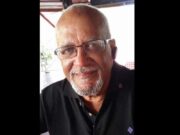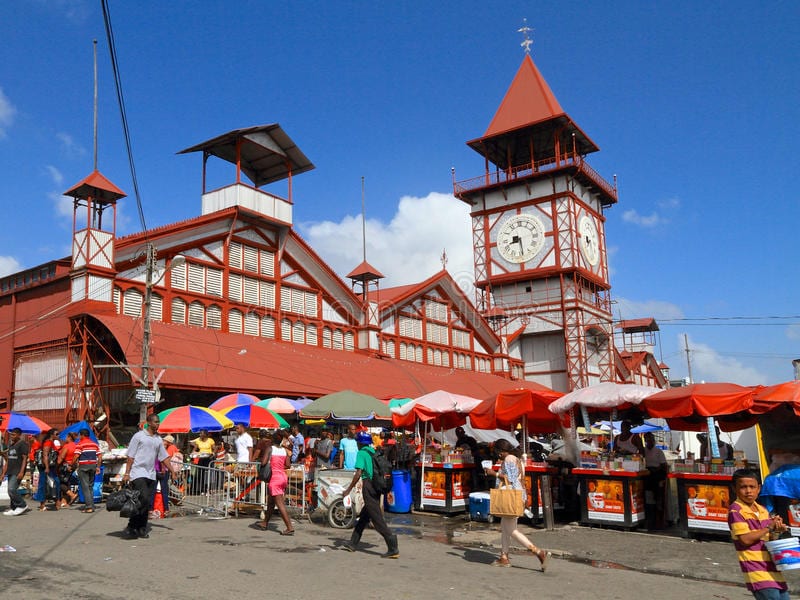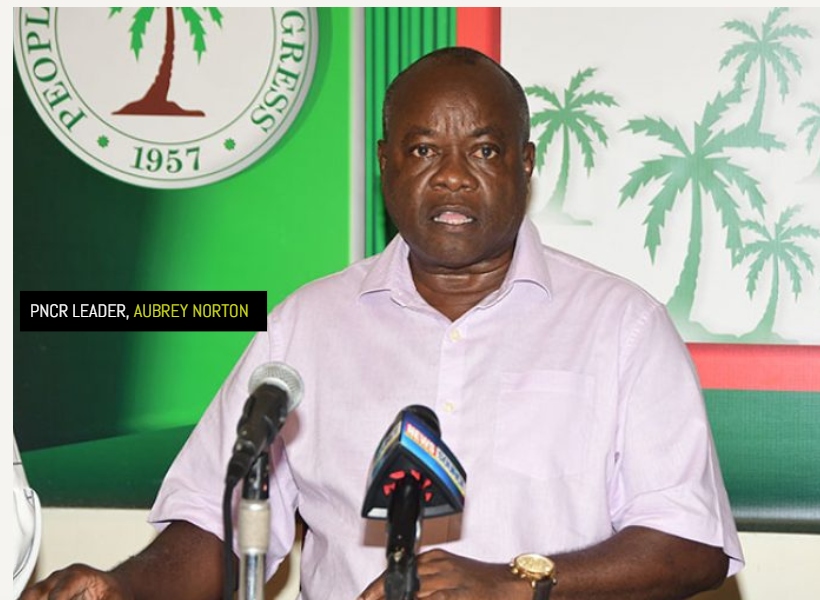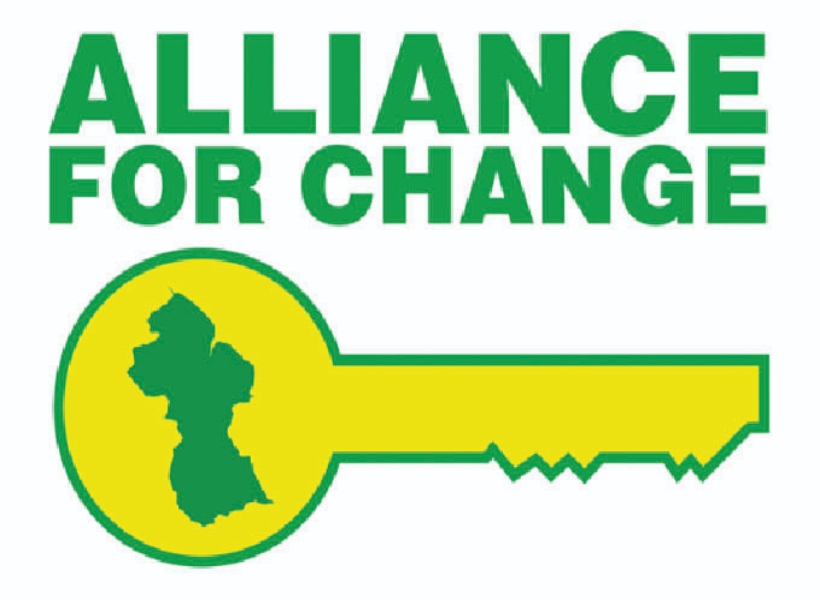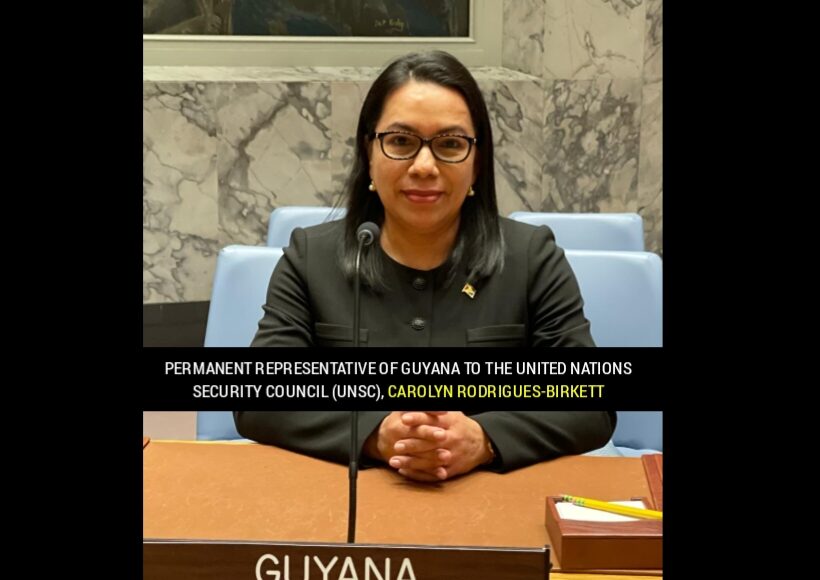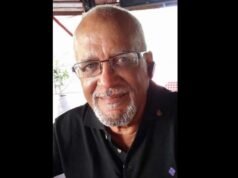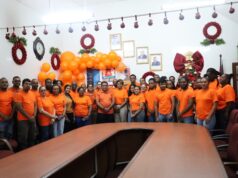By Kiana Wilburg
According to the Council of Foreign Relations, a century-old US think-tank, conflict resolution and prevention strategies have a higher chance of being more effective when the perspectives of women are included. In fact, several studies conducted by this independent organization show that if women are consulted during peace negotiations, those talks are 64% less likely to fail. Another equally important finding is that agreements that have had meaningful input from women for war-torn areas are 35% more likely to last at least 15 years.
Permanent Representative of Guyana to the United Nations Security Council (UNSC), Carolyn Rodrigues-Birkett, is a staunch believer that the voice of women is indispensable to peace processes, hence she is particularly proud to have been chosen to represent Guyana on the Council.
The UNSC is a principal organ of the UN, tasked with maintaining international peace and security. It is powerful due to its unique authority to make legally binding decisions that member states must implement, including imposing sanctions and authorizing military action.
The UNSC consists of five permanent members with veto power (China, France, Russia, the United Kingdom, and the United States) and 10 non-permanent members elected for two-year terms by the General Assembly. This composition allows it to exert significant influence over some global geopolitical matters, thereby making it a pivotal body in international relations.
During an exclusive sit-down with Guyana Standard recently, the Ambassador shared insights on Guyana’s application to be part of that body and how she views her role there.
She noted that Guyana was the first CARICOM country to serve on the USNC back in 1975 all the way to 1976. The next term Guyana served was from 1982 to 1983. Other CARICOM nations that served on the council included Jamaica, Trinidad and Tobago and St. Vincent and the Grenadines. The Ambassador said Guyana is the first CARICOM nation to now serve for a third time on the council.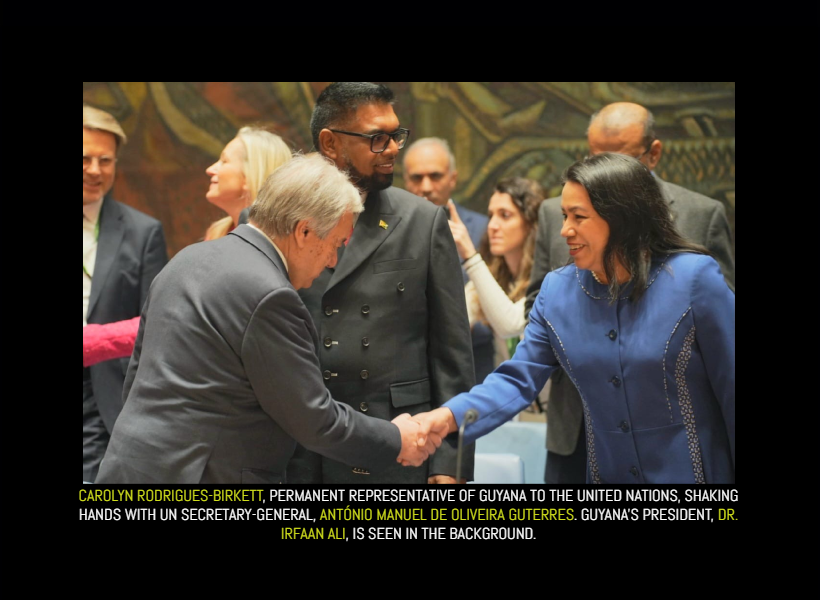
She noted that Guyana’s application to sit on the council in January 2024 was submitted 12 years ago. Rodrigues-Birkett recalled serving as Minister of Foreign Affairs at the time. Interestingly, she shared that Venezuela was very supportive of Guyana’s application.
“…One of the first countries to support us for that bid, and we had a reciprocal support agreement at that time, was Venezuela. So Venezuela supported us, and we supported them for their election to the Human Rights Council,” said Ambassador Rodrigues-Birkett.
She made it clear, however, that Guyana’s application was never tied to making Venezuela an issue but rather ensuring Guyana has a seat at the global table to contribute to the maintenance of peace and security.
“We don’t have a large military but we have perspectives on peace that I think we can share with the world… It is important that the council benefits from a diversity of views on how we prevent conflict but also how we deal with conflict because some how or the other, conflict seems inevitable now,” said the Ambassador.
While Guyana’s main intention on the council is to contribute to global peace, the ambassador said her country reserves the right to inform the council of any concerns regarding Venezuela.
CONFLICT IN THE WORLD
Prior to her appointment as Guyana’s Permanent Ambassador to the United Nations, much of Rodrigues-Birkett’s understanding about the turbulent nature of politics was drawn from her roles in the People’s Progressive Party’s (PPP) Government.
Rodrigues-Birkett first entered the Guyanese Cabinet as the Minister of Amerindian Affairs in April 2001. She was reappointed to that post following the 2006 General Election, serving until January 2008. Her tenure saw her advocating for Amerindian rights and development before transitioning to the role of Minister of Foreign Affairs in April 2008, succeeding Rudy Insanally.
Rodrigues-Birkett held this position until the PPP/C’s electoral defeat in May 2015, after which she declined a parliamentary seat. She opted to focus on international work. Her global contributions started with her appointment as Director of the Food and Agriculture Organization Liaison Office with the United Nations in Geneva in August 2017. There, she served for almost three years, until being appointed as Permanent Representative of Guyana to the United Nations in 2020.
The Ambassador said her positions in the PPP/C Government not only sharpened her negotiation skills but deepened her understanding of politics, enabling her to effectively represent her country on such an important global platform.
While the experience in domestic politics did provide a solid foundation for Rodrigues-Birkett to work with, the UNSC takes time to adjust to mentally and emotionally. It is akin to a concentrated reservoir of the world’s most gut-wrenching problems. The ongoing war in Gaza is just one of them.
According to a BBC report, in December 2023, at least 20,000 Palestinians in Gaza were killed since Israel began bombing the territory in the wake of October 7 attacks by Hamas, a Palestinian militant group.
“Even before October 7, the UN Secretary General, António Guterres’ last report before that indicated that Palestine for 2023 would have had the most deaths since they started counting, and many people forget that. It was a pressure cooker situation in a space that had become an open air prison (for the people of Palestine),” said Ambassador Rodrigues-Birkett.
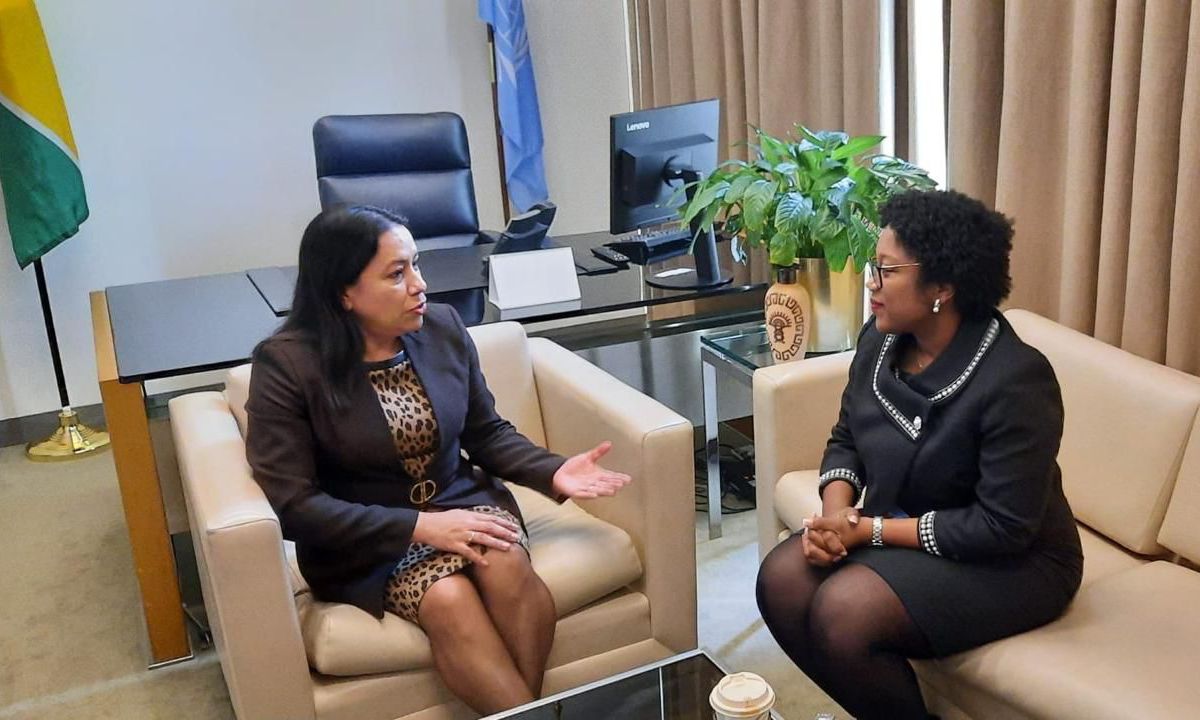
She said the humanitarian crisis in Gaza has been on the UNSC agenda for over 70 years. The Ambassador said Guyana’s position has been clear. There should be a two-State policy that allows for Palestine and Israel to occupy the shared territory in peace, and there needs to be a cease fire. “…What we see right now is that the people of Gaza either have a choice of dying from bombs (from Israel) or dying from starvation because getting food into Gaza is challenging,” she said.
Even with the war in Ukraine, the Ambassador said Guyana’s position has been that there must be respect for territorial integrity and international law. “…We have been calling for the war to end, for Russia to withdraw it forces and for Russia to abide by international law. And we will continue to call for this,” said the Ambassador.
ABOLISHING THE VETO POWER
As stated earlier, there are five countries with the power to veto any resolution they see fit. Russia exercised this power in September 2022, when a Security Council resolution described its attempts to unlawfully annex four regions of Ukraine as “a threat to international peace and security.” Russia demanded that the decision for condemnation be immediately and unconditionally reversed. And so it was.
The US also exercised its power in December 2023 when a resolution was brought by the United Arab Emirates, and backed by over 90 members, calling for a cease fire in Gaza and for Palestinians to receive aid.
“We have a challenge in the council with stopping wars and preventing them. What has happened, when the veto was put in place, you would recall the predecessor to the UN was the League of Nations and every country basically had a veto because decisions were supposed to be made by consensus…that resulted in some ways to the collapse with that body, “ the Ambassador explained. When the UNSC was formed, “the victors of war” were allowed to retain the veto power.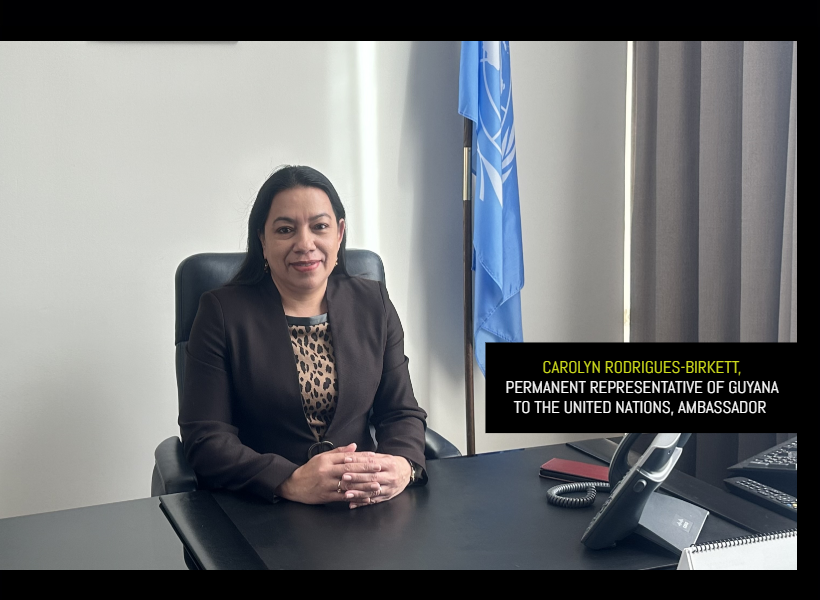
“One would think that was put in place to prevent issues like what we are faced with today…but that brings us to the ongoing calls for reform,” said Rodrigues-Birkett.
The Permanent Member to the UN said Guyana is currently the coordinator on the Security Council Reform for CARICOM group. In that space, there is agreement for reforms on the expansion of the permanent and non-permanent categories as well as for abolishing the veto-power, which has been abused.
She said it is the position of CARICOM that Africa deserves to be a permanent member, adding that it remains a “historical injustice that must be corrected.”
As for the veto power she said, “We would like to abolish it but being realistic, we also said that if it will not be abolished then new permanent members must have the veto power as well.”
In the meantime, the Ambassador said some progress has been made regarding the use of the veto power. As result of Russia’s exercise of the veto power in 2022, the UN General Assembly imposed a new rule that the use of a veto would trigger a debate in 10 days for that nation to explain why it was invoked.
Regarding other reforms, the ambassador explained that a working paper or text has to be produced for the proverbial ball to get rolling so that countries can make their formal contributions. She said there is no movement yet on that text for this to move forward.
“There are some countries that are preventing that (draft text) from happening, and that is the challenge we face,” said the Ambassador.
MAKING A DIFFERENCE
As the first Guyanese woman to represent her nation at this level, Rodrigues-Birkett said she is imbued with a sense of honour and gratitude. At her core, she believes women must be given a chance to share their perspectives at every table, particularly, peace keeping platforms.
“In war and conflict, women and children suffer the most…We have seen in many conflicts that rape and sexual violence are used as weapons of war and I think it is important for women to be at all tables and spaces like the UNSC to share in solutions that lend to our protection and upliftment…”
To this noble agenda, Ambassador Rodrigues-Birkett hopes to dedicate all her energies and the best of her abilities. She said this is not just for the love of country but to prove that women can and must be allowed to contribute to world peace.
